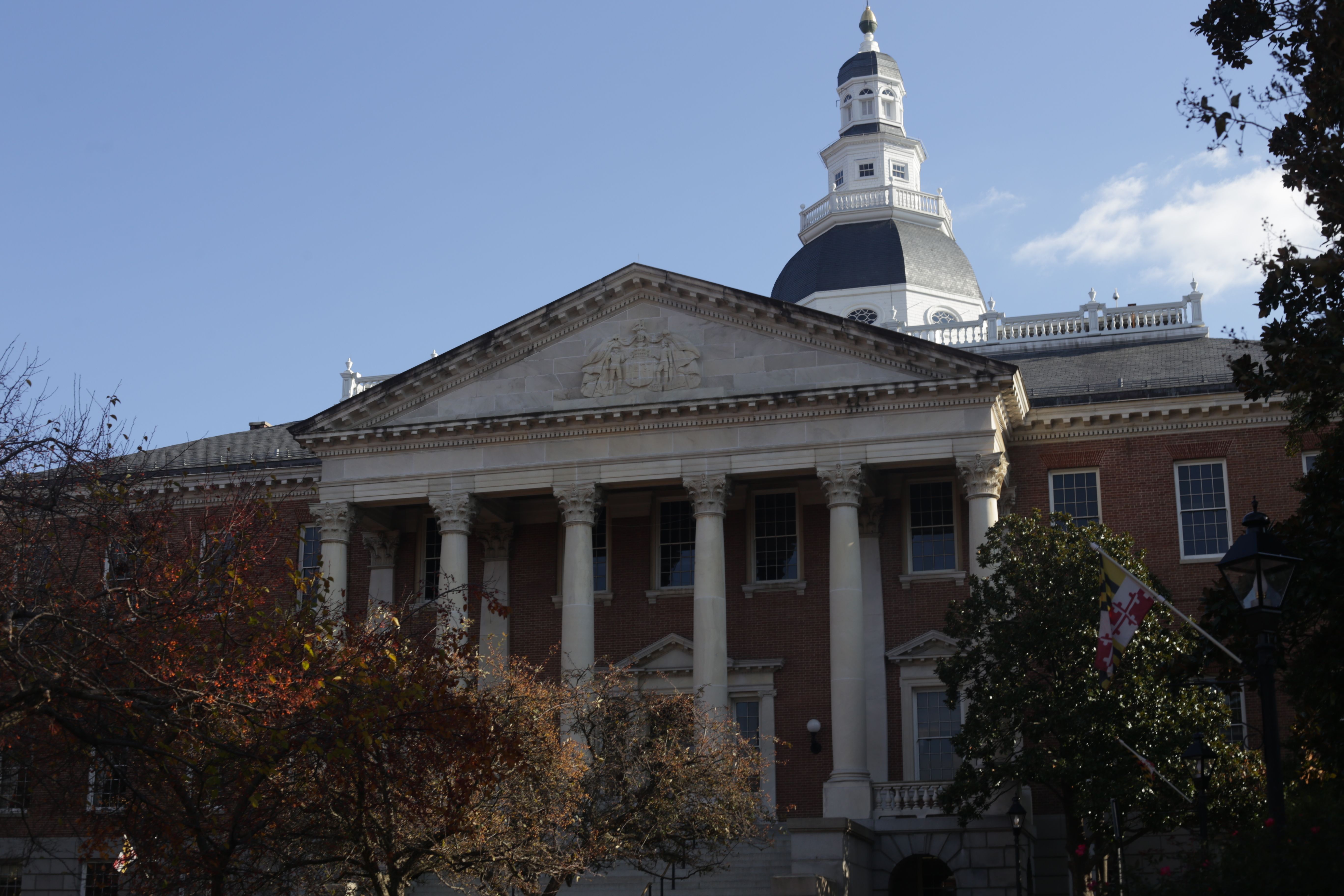Marybeth Shea doesn’t have a car. She buys just about everything from thrift stores, except for her bike. In the winter, she doesn’t heat her house above 50 degrees; in the summer, she doesn’t cool it below 86.
These are the calculations Shea makes to live off the $33,693 she earns each year as a lecturer in the University of Maryland’s English department. In Prince George’s County, where Shea resides, the expected yearly cost of living for a single adult is $36,492, according to MIT calculations.
“It makes me cry that, at 60, I am in poverty and I am a professor,” Shea said.
[Read more: Maryland bill aims to fix “archaic” USM workers unionization system]
A bill in the Maryland General Assembly could give lecturers like Shea more power in negotiations for higher wages. House Bill 1143 would grant collective bargaining rights to all faculty members and graduate student employees in the University System of Maryland.
This would allow these workers to directly negotiate wages and terms of employment with their superiors — something they’re currently prohibited from doing under state law — and unionize, if they so choose.
Two other bills currently in the House Appropriations Committee would grant these rights to graduate student employees — something the graduate school and other university officials have been forceful in opposing. But HB 1143 is designed to serve as a catch-all for higher education workers who currently don’t have these rights, said graduate student labor activist Katie Brown.
“It’s framed as a justice act for a reason,” said Brown, a communication doctoral student. “It’s because this is something that needs to be addressed.”
This isn’t the first time that such a bill is being heard in the state legislature. In 2012, Shea and six other non-tenure track faculty members testified in favor of legislation that would grant collective bargaining rights to the same population of workers.
While that bill died in committee, the university system tweaked its policies a few months later to include meet-and-confer, a process that allows graduate student employees and adjunct faculty to discuss job-related concerns with administrators without a binding agreement.
[Read more: UMD grad students think they can make progress toward collective bargaining rights this year]
But the revised policy didn’t cover everyone. Tenured faculty and non-tenure track faculty who aren’t adjuncts — Shea and the six other faculty members who testified, for instance — are still excluded from participating in meet-and-confer.
When Shea saw she wouldn’t be included in the revised policy, she was shocked.
“I was devastated,” she said. “I knew it meant I had no standing to be involved in any of it.”
Spokesperson Mike Lurie wrote in an email that the university system “remains comfortable” with the current law in place.
“The cost of negotiation, and potential for productivity slowdowns for both faculty and students, outweighs any perceived benefit,” Lurie wrote.
Graduate student workers have tried to use the process to resolve grievances, but they haven’t been satisfied, due to the non-binding nature of negotiations, Brown said.
Attendance among adjuncts is low in meet-and-confer meetings, said Mark Arnold, the director of faculty initiatives in the university’s Office of Faculty Affairs. The most he ever saw at a meeting was 12, and the fewest was two, he said. Plus, those who showed up weren’t interested in engaging a union to represent them in the process — an option available in meet-and-confer.
Anthony McCann, who was an adjunct lecturer for the public policy school before being promoted to associate professor in 2017, attended a handful of these meetings out of curiosity. He said he’s not sure whether he’d join a union if this bill were to pass.
As a former federal employee, McCann doesn’t rely on the paycheck he receives from the university.
“Money’s not a big deal,” he said. “I do it because I enjoy it.”
Arnold said he’s observed interest in collective bargaining among non-tenure track faculty in English and other departments in the arts and humanities college, acknowledging that there may be interest in other colleges that he just hasn’t heard of.
Still, Shea said she’s grateful for other policy changes since 2012 that have benefitted faculty like her.
Arnold has been pushing for longer contracts for non-tenure track faculty. It’s a personal fight for him: he worked on semesterly contracts for most of the 12 years he taught in the English department.
This semester, all instructional faculty members in this department got a $500 per course bonus, Arnold added.
“That’s not the end of the conversation,” he said. “That doesn’t mean there’s going to be some massive change tomorrow, but the challenge of salaries for instructional faculty is recognized and is part of ongoing discussions.”
Julie Greene, a history professor who specializes in United States labor history, noted that research shows unionization leads to higher salaries and better working conditions for staff.
While Greene expressed interest in joining a union, she said that as a faculty member with tenure, she’s better off than those without tenure and graduate student workers.
“As a labor scholar, what I see in the world around me, and at the University of Maryland, is … a whole lot of teaching and research is being done by two groups that are especially exploited,” she said.



